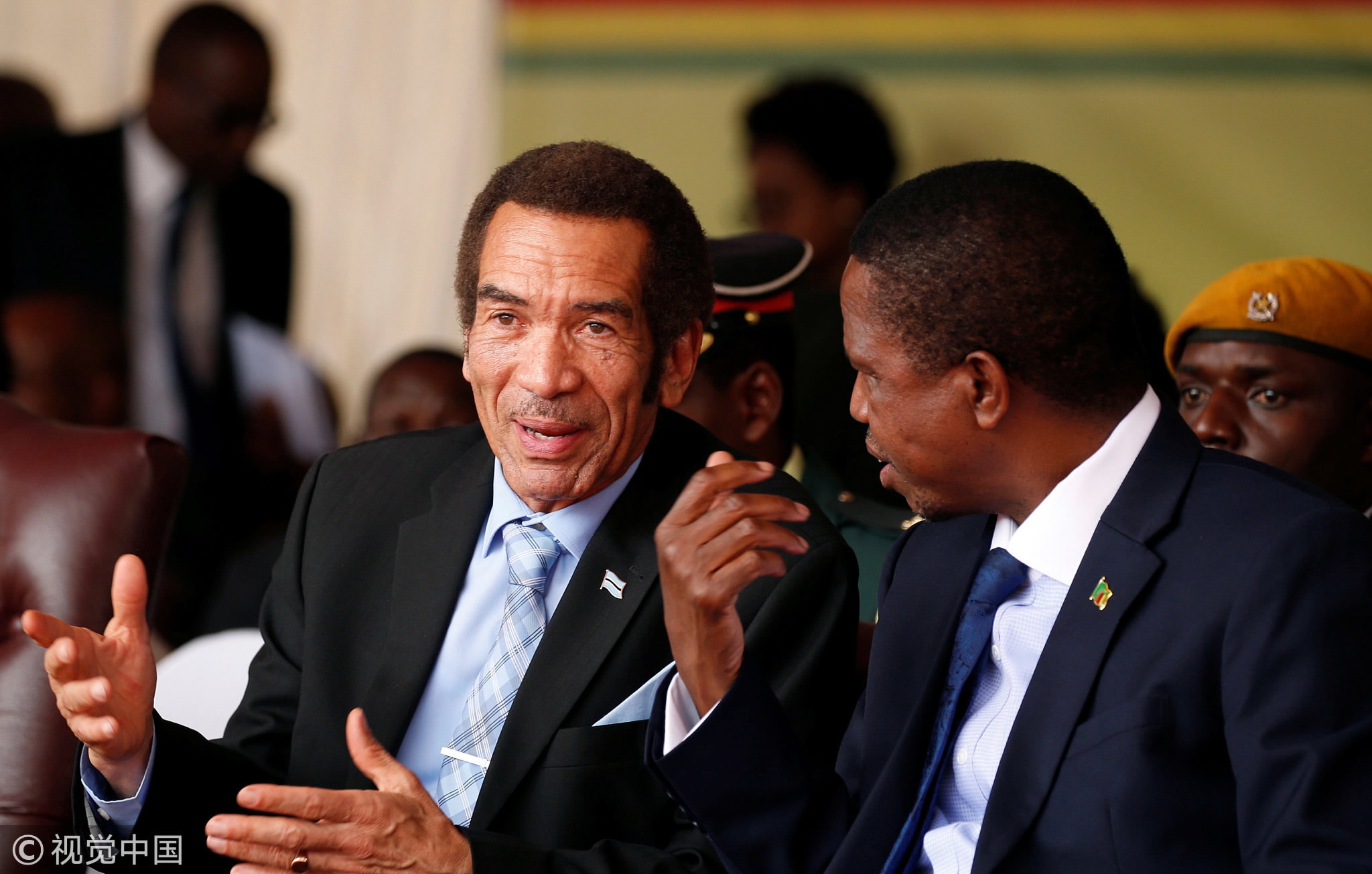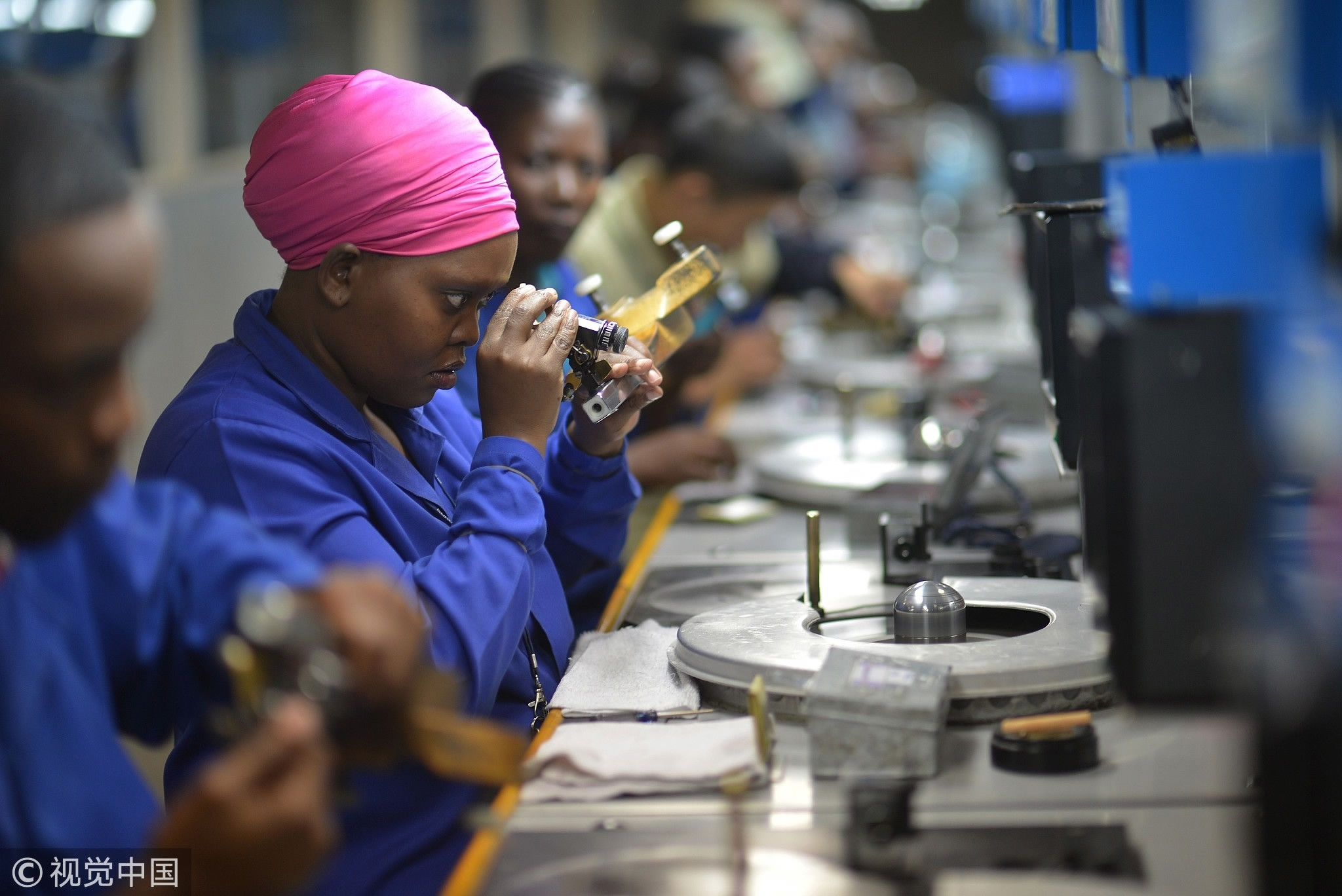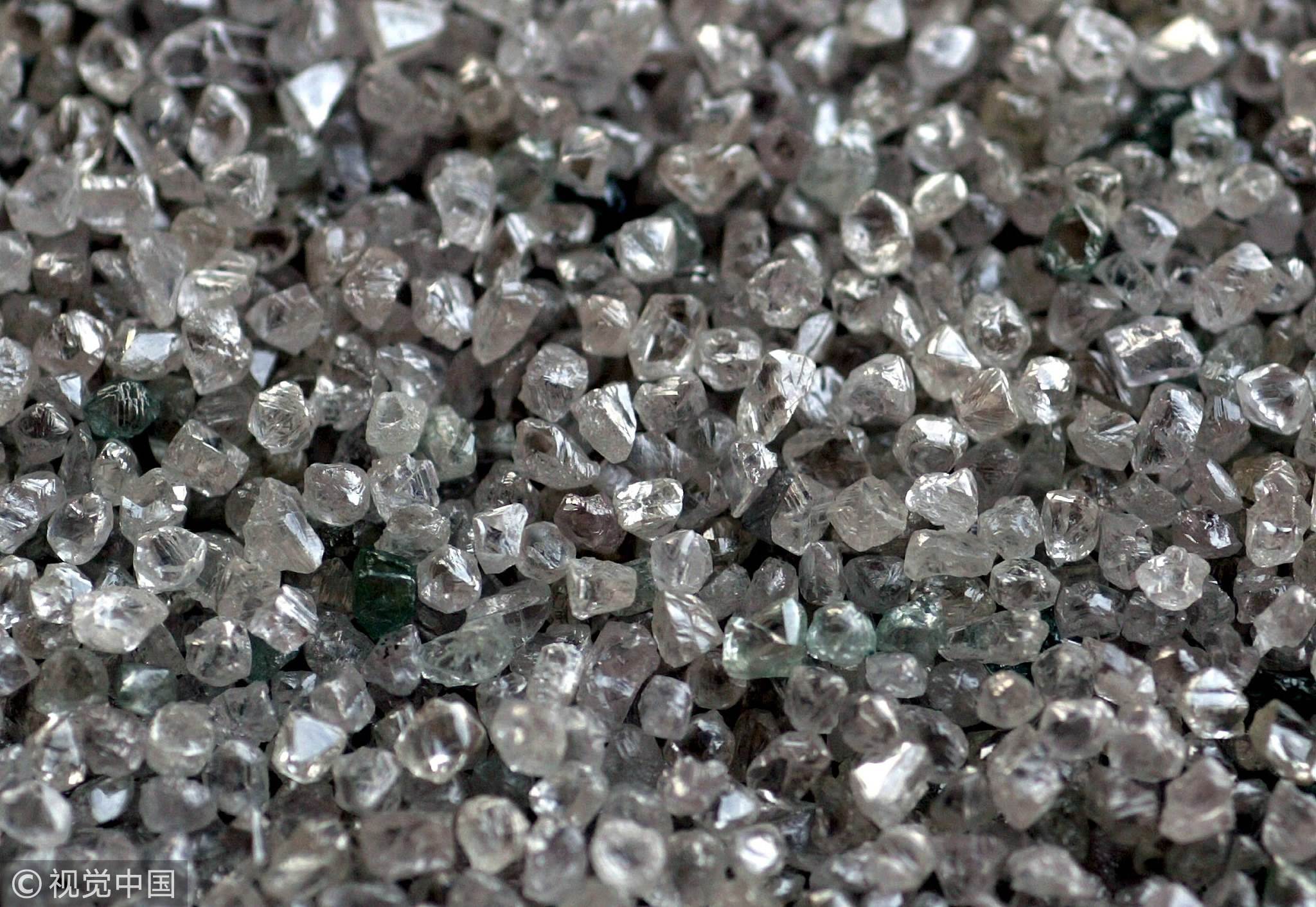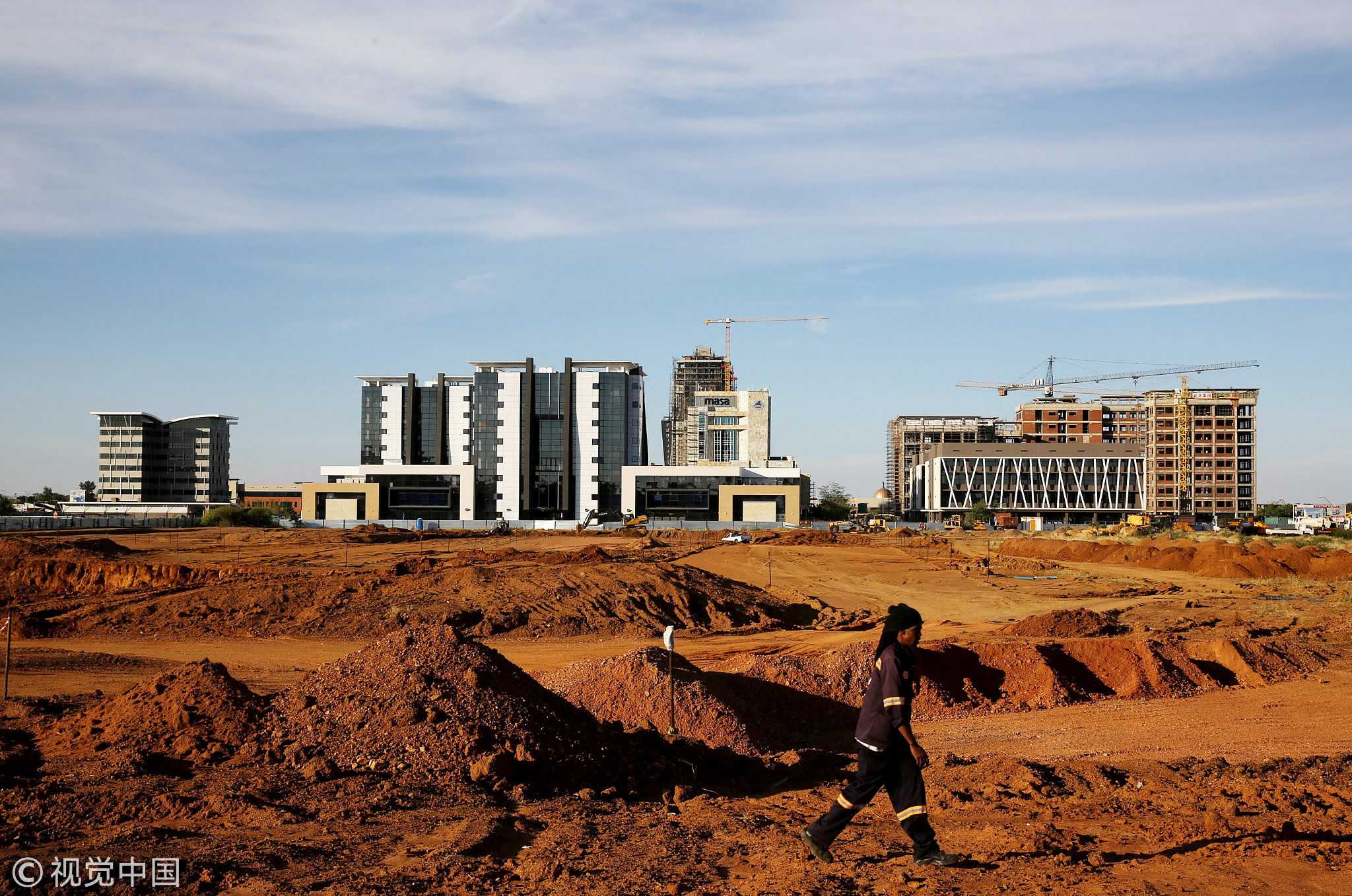
World
17:24, 01-Apr-2018
Africa's story of success: Botswana sees smooth transfer of power
By Sim Sim Wissgott

Mokgweetsi Masisi was sworn in on Sunday as Botswana’s new president, a day after Ian Khama stepped down in a smooth transition of power in Africa.
Botswana has long been seen as an example of democracy, stability and a strong economy on the continent. But is that still the case? And what might Masisi’s coming to power mean for the country?
Why is Khama’s stepping down noteworthy?
A retired army general, 65-year-old Khama stepped down on Saturday after 10 years in power, having reached the constitutional limit of two five-year terms in office.
Although accused by some of an autocratic leadership style, his voluntary departure already makes him a rare example on a continent where leaders have often tried to hold on to the reins for decades.

November 24, 2017: Botswana President Ian Khama (L) talks with Zambian President Edgar Lungu during the swearing in of Zimbabwe's new president Emmerson Mnangagwa in Harare, Zimbabwe. /VCG Photo
November 24, 2017: Botswana President Ian Khama (L) talks with Zambian President Edgar Lungu during the swearing in of Zimbabwe's new president Emmerson Mnangagwa in Harare, Zimbabwe. /VCG Photo
The son of Seretse Khama, Botswana’s first president after independence, Ian Khama “positioned himself as a moral leader in the region… who respects laws and traditions,” Matteo Vidiri, a BMI Research analyst, told AFP news agency.
Famously outspoken, Khama even called on President Joseph Kabila of the Democratic Republic of Congo – who has clung on beyond the end of his second term – and Zimbabwe’s Robert Mugabe – ousted last year after 37 years in power – to leave office.
Who is Mokgweetsi Masisi?
A trained teacher who also worked for the United Nations Children's Fund, Masisi, 55, became an MP in 2009 and served as minister of public affairs in the government in 2011-2014, before Khama made him education minister, and then vice president.
He is seen as a close ally of his predecessor.

March 11, 2015: Employees at work in a diamond cutting and polishing company in Gaborone, Botswana. /VCG Photo
March 11, 2015: Employees at work in a diamond cutting and polishing company in Gaborone, Botswana. /VCG Photo
Analysts seem split about his economic credentials but RMB Botswana's economist Moatlhodi Sebabole told Reuters: "The business community sees him as being more business-friendly so that should work well for the economy. He seems to be more likely to come up with regulation that enables more economic activity."
Leonard Sesa, a political scientist at the University of Botswana, described him as a “jack-of-all-trades… experienced in numerous areas.”
“He will be the type of president who assigns someone something, then monitors them very closely because he knows exactly what the output should be,” he told Bloomberg news agency.
Botswana’s example
A country of 2.2 million people, lodged between South Africa, Namibia and Zimbabwe and slightly smaller than France, Botswana has often been referred to as an African story of success .
From one of the world's poorest countries in the 1970s, it has turned into one of the fastest-growing economies thanks to a lucrative diamond industry and a sound economic governance.

August 26, 2004: Rough diamonds during their sorting process are seen in Botswana Diamond Valuing Company in Gaborone, Botswana. /VCG Photo
August 26, 2004: Rough diamonds during their sorting process are seen in Botswana Diamond Valuing Company in Gaborone, Botswana. /VCG Photo
It is also one of the handful of African nations defined as free democracies by Freedom House and The Economist Intelligence Unit, and is rated as the least corrupt country in Africa by Transparency International.
Its dependence on the diamond trade however has proved risky. A fall in commodity prices in 2009 brought about a recession and rising unemployment.
"A slowing economy and increasing public discontent has damaged the narrative of Botswana's 'special character', of a country being able to escape the 'resource curse'," according to Vidiri.
What next?
Masisi now faces the tough task of reviving and diversifying Botswana’s economy.
Under his predecessor, many investment plans were halted, and critics complain Khama created a society of “beggars” through an array of handouts.
In his inaugural speech on Sunday, which was posted on the Botswanian government's Facebook page, Masisi pledged that "one of my top priorities... will be to address the problem of unemployment especially amongst the young people who constitute the majority of our population."
He also promised to introduce "a combination of strategies required to stimulate accelerated economic growth" and vowed to pour money into infrastructure projects and tourism.

November 23, 2015: A construction site in Gaborone, Botswana. /VCG Photo
November 23, 2015: A construction site in Gaborone, Botswana. /VCG Photo
The new president comes to power 18 months before Botswana’s next election but is widely expected to be the candidate of the ruling Botswana Democratic Party (BDP) when the country goes to the polls in October 2019.
In 2008, Khama was also made president over a year before elections.
Even with Khama stepping down, some say he will continue to pull the strings behind the scenes. “I expect to see Masisi award Khama some type of national assignment once he is retired. There’s clearly mutual understanding there about working together,” Sesa told Bloomberg.
They might face some competition however. The BDP has ruled since independence in 1966 but won less than 50 percent of the vote for the first time in 2014.
And four opposition parties have already said they could join forces to try and unseat the ruling party at the next poll.
11787km

SITEMAP
Copyright © 2018 CGTN. Beijing ICP prepared NO.16065310-3
Copyright © 2018 CGTN. Beijing ICP prepared NO.16065310-3